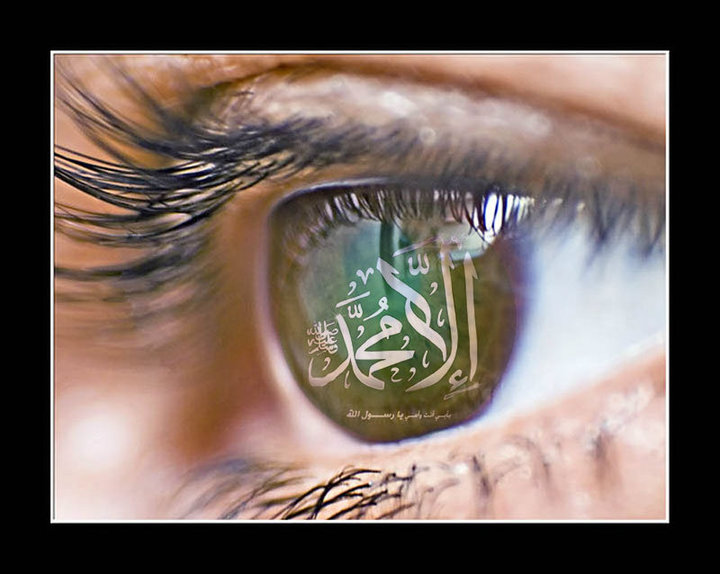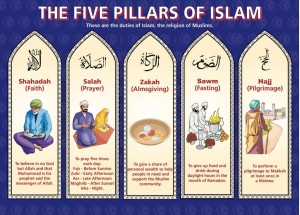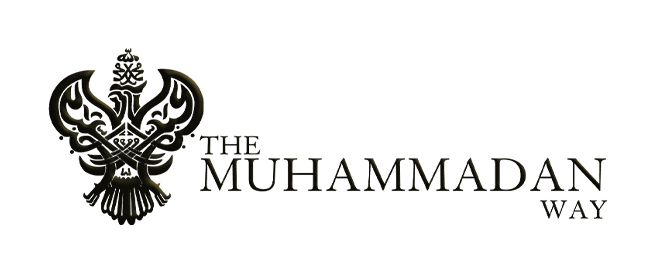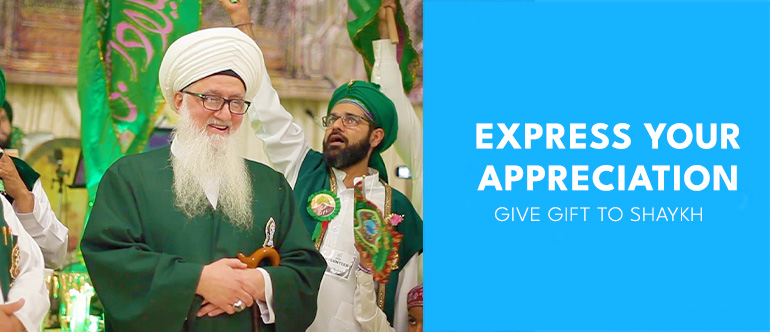
REALITY OF FIRASAH- VISION OF THE BELIEVER
This Article Has Been Translated
![]()
Spanish
From the Teachings of Mawlana Shaykh (Q) as taught By Shaykh Nurjan Mirahmadi
A’odhu billahi minash shaytaanir rajeem
Bismillahir Rahmanir Raheem
عَنْ أَبِي سَعِيدٍ الْخُدْرِيرَضِّيَّ اللهُ عَنْهُ قَالَ، قَالَ رَسُولُ اللَّهِ ﷺ :” اتَّقُوا فِرَاسَةَ الْمُؤْمِنِ، فَإِنَّهُ يَنْظُرُ بِنُورِ اللَّهِ. ”
[اَلتِّرْمِذِي، كتاب ٤٧، حديث ٣٤١٩]
‘An Abi Sa’yidel Khudriyi (ra) qala, qala Rasulullahi ﷺ:“Ittaqoo Firasatal Mu’min, Fa Innahu yanzuru Bi Nurillah.
[At Tirmidhi, Kitab 47, Hadith 3419]
Narrated by Sa’yidel Khudri (ra) that the Messenger of Allah (pbuh) said: “Beware/be conscious of the true believer’s spiritual vision, for indeed he sees with Allah’s Light.” (The Rocky Tract 15:75). [At Tirmidhi, Book 47, Hadith #3419]
Every place has a specialty. And the specialty of the turuq, and the people of the zikrullah, especially from the Naqshbandiatul ‘Aliya, Naqshbandia; from Mawlana Shaykh’s teaching, that our way is the emphasis on adab. And Allah (AJ) inspire us to come through these doors is the school of adab, and the school of manners and etiquette at which our belief is through those good manners. And the etiquette in which Allah (AJ) wants is the opening for all realities, is the opening of love, is, every hadith, you will find its root goes back to that love. That through voluntary worship means a state of love of Allah (AJ) and good manners, and holy Hadith Qudsi that, “I become the hearing of My servant, the seeing of My servant, the breath of My servant, the speech of My servant, the hands of My servant, the feet of My servant,” means and so much so become rabbaniyoon and say: kun fa ya koon.
عَنْ أَبِيِ هُرَيْرَةِ رَضِّيَّ اللهُ عَنْهُ قَالَ، قَالَ رَسُولُ اللهِ ﷺ : إِنَّ اللهَ تَعَالَىٰ قَالَ:” وَمَا تَقَرُّبِ إِلَيَّ عَبْدِيِ بِشَيْءٍ أَحُبَّ إِلَيَّ مِمَّا اِفْتَرَضْتُ عَلَيْهِ. وَلَا يَزَالُ عَبْدِي يَتَقَرَّبُ إلَيَّ بِالنَّوَافِلِ حَتَّى أُحِبَّهُ، فَإِذَا أَحْبَبْتُهُ كُنْتَ سَمْعَهُ الَّذِي يَسْمَعُ بِهِ، وَبَصَرَهُ الَّذِي يُبْصِرُ بِهِ، وَيَدَهُ الَّتِي يَبْطِشُ بِهَا، وَرِجْلَهُ الَّتِي يَمْشِي بِهَا. وَلَئِنْ سَأَلَنِي لَأُعْطِيَنَّهُ، …
[حَدِيثْ اَلْقُدْسِي – اَلمَصْدَرْ: صَحِيحْ الْبُخَارِي – رقم:٦٥٠٢]
‘An Abi Hurairah (ra) qala, Qala Rasulullahi ﷺ : InnAllaha ta’ala qala: “ Wa maa taqarrubi ilayya ‘abdi be shayin ahubba ilayya memma iftaradhtu ‘alayhi. Wa la yazaalu ‘abdi yataqarrabu ilayya binnawafile hatta uhebbahu, fa iza ahbabtuhu kunta Sam’ahul lazi yasma’u behi, wa Basarahul lazi yubsiru behi, wa Yadahul lati yabteshu beha, wa Rejlahul lati yamshi beha. Wa la in sa alani la a’teyannahu…” [Hadith al Qudsi, Sahih al Bukhari, Raqam: 6502)
Narrated by Abu Hurairah (ra) that: the Messenger of Allah ﷺ said that: Allah the Almighty said: “… My servant does not draw near to Me with anything more loved by Me than the religious duties I have obligated upon him. My servant continues to draw near to Me with voluntary acts of worship so that I shall love him. When I love him, I am his hearing with which he hears, his seeing with which he sees, his hand with which he strikes, and his foot with which he walks. Were he to ask (something) of Me, I would surely give it to him, …” [Holy Hadith, Authentic by al-Bukhari, # 6502]
This is a stage in which Allah (AJ) describing that holy hadith of Prophet ﷺ. And it is inheritable for the people of good manners and good akhlaq. Those good manners and good characteristics, open the reality of every ‘amal and every act of worshipness. And every act of worshipness is in its state of reality, is not the reward, but it’s a means in which to achieve the reward of good character.
Means we don’t go round claiming we gave our shahadah to show that we are self-righteous. Means the principles are not meant to, where you want put all your focus that, “I accomplished this pillar of Islam. I pray therefore I should tell the whole world I pray.” That wasn’t the end goal. Your praying, your fasting, your Zakah, your hajj– all of those were meant to develop good character. Without the good character, the prayer is for nothing. Without the good character, the Zakah is for nothing. Without good character, the hajj, that now coming up inshaAllah in two and a half weeks- the beginning of Dhul Hajj, inshaAllah– is for nothing. It is may be for tourism, to go to a nice hotel and buy some jewellery. Means that everybody can do the amal but what Allah ‘Azza wa Jal wants is the khushia and the love within the heart, the sincerity within the heart.
Five Pillars of Islam Were to Tame Our Ego
Shahada: So then the first round of doing the pillars is to tame. We declared our Islam so that Allah’s (AJ) Might and Majesty is supreme. But didn’t mean we saw anything yet. We merely claimed it to establish who is running the show: Allah (AJ) running and I am nothing.
Allah’s (AJ) Might and Majesty is supreme. But didn’t mean we saw anything yet. We merely claimed it to establish who is running the show: Allah (AJ) running and I am nothing.
Salat: Means then we came to our prayers, so that I would subdue and I would bring down my wild characteristics, not that I accomplished anything yet. ‘Cause later the prayer has to open up, where Prophet ﷺ described, “Pray as if you see Allah (AJ).” Maqam al-ihsaan means that you are praying and you must be seeing. If we are not seeing through our heart, the prayer is still an imitation.
عَنْ أَبِي هُرَيْرَةَ رَضِيَ اللَّهُ عَنْهُ:(جِبْرِيلْ عَلَيْهِ السَّلَامْ) قَالَ: فَأَخْبِرْنِي عَنْ الْإِحْسَانِ.
قَالَ ﷺ: “أَنْ تَعْبُدَ اللَّهَ كَأَنَّك تَرَاهُ، فَإِنْ لَمْ تَكُنْ تَرَاهُ فَإِنَّهُ يَرَاك.”
[المَصْدَرْ: صَحِيحْ اَلْبُخَارِيْ ٥٠]
‘An Abi Hurairah (ra): (Jibreel (as)) Qala: “Fa akhberni ‘an al Ihsan.”
Qala ﷺ: “An Ta’bud Allaha, Ka annaka tarahu, fa in lam takun tarahu fa innahu yarak.” [Sahih Bukhari 50]
Narrated by Abi Hurrairah: (Archangel Gabriel (as)) said, “Now, tell me about Ihsan (Spiritual Excellence).”
The Prophet Muhammad (pbuh) replied, “It is to worship/serve Allah (AJ) as though you behold/see Him; and if you don’t behold/see Him, (know that) He surely Sees you.” [Source: Authentic by Bukhari 50]
Zakah: Means then you give in Zakah, you are not supposed to be proud of your Zakah because you gave 2%, 5%. But you are supposed to put yourself on the table and make yourself to be halal for Allah (AJ).
Hajj: Means the Zakah, the reality of Zakah, Sayyidina Ibrahim (as) going to sacrifice his child. And Sayyidina Isma’il (as) asked- between the conversation of awliyaullah – that Sayyidina Isma’il (as) asked his father, “Whose station is higher – yours or mine?”
Sayyidina Ibrahim (as) said, “Oh, it was very difficult for me. I was about to fulfill Allah’s command and sacrifice you.”
He said “Yeah, but you were sacrificing your property. I was sacrificing myself for Allah (AJ).”
Because the story of Sayyidina Ibrahim (as) and Sayyidina Isma’il (as) is that Sayyidina Isma’il (as) had enough firasah and iman to steady his father’s hand. He says, “I know what you are about to do and inshaAllah you find me to be peaceful.” Showing the extreme amount of yaqeen and certainty, extreme amount of faith that, “I will sacrifice myself.” That is the light of Sayyidina Muhammad ﷺ.
They teach that to sacrifice our self, not to suicide bomber, but to sacrifice my desires, my wants, my bad characteristics. “I put those on the table ya Rabbi. It’s not important what I want, it’s not important what I need. Ya Rabbi, just grant me good characteristics, good characteristics. That your Rida and Satisfaction be dressing me,” that we ask that Allah (AJ) forgive us and always dress us from satisfaction; forgive us and dress us from satisfaction means that opens the amal (action).
اِلَهِى اَنْتَ مَقْصُوْدِيْ وَرِضَاكَ مَطْلُوْبِيْ
“Ilahi anta maqsudi wa radhaaka matloob–
“My God, You are my aim, and Your Satisfaction is what I seek.”
Allah’s (AJ) Satisfaction Opens the Reality of 5 Pillars
If Allah finds satisfaction in us, your shahadah now becomes real. You witness Prophet ﷺ. Your salah becomes real. Your heart is open. You are witnessing what Allah (AJ) wants us to witness, and everyone has a darajat in which Allah (AJ) will grant them. Your zakah is real because you sacrifice yourself. Means then your fasting becomes real. You fast with all of your senses. Your hajj is real. Means at that time when the hijrah begins and the hajj begins, your soul is moving into that Divinely Kingdom. And with your soul you are making hajj and with your soul you are making tawaf- Baytul Mamur. This is the imitated tawaf on dunya. Means all of those we do on the material earth, we have to do- we do, we do, we do but with good character, Allah (AJ) begins to elevate that amal and that action.
Turuq Are School of Manners
Means then these are the schools of manners. They are very different from other places. They have lots of rules, lots of disciplines, lots of teachings for ourselves and that is what sets it apart from most places. Most people come from other backgrounds and they are taken aback by the amount of discipline. But it’s because of those disciplines that open good characteristics. For one example: we are not allowed to speak of our experiences because the schools of discipline, they teach us the tricks of the nafs. The trick of the ego is very dangerous. If what we do, we are doing for Allah (AJ) has to be kept pure. Means the turooqs know that. They know the sickness of the nafs. They know how to identify that sickness, and you don’t have to even say anything. Their firasah can go in to degrees of reality.
1. First level of Firasah – Vision of the Character
The first level of their firasah is to identify the characteristics of the people who sit before them, not the characteristic that you wish to show the world. Means my characteristic, I may show the world that I’m very nice, very loving; then in front of people I serve tea to everyone. Those without firasah, they say, “This is a very nice guy!” The firasah and the reality of the firasah is that their soul is open. They hear through their soul, they see through their soul, they feel through their soul, they taste through their soul. Again darajats (levels) – one may be entry level, one may many, big advances. Merely their soul is emanating and that malakut, kulli shay, where Allah (AJ) says in Suratul Yaseen that the malakut is all-encompassing.
﴾فَسُبْحَانَ الَّذِي بِيَدِهِ مَلَكُوتُ كُلِّ شَيْءٍ وَإِلَيْهِ تُرْجَعُونَ ﴿٨٣
36:83 – “Fasubhanal ladhee biyadihi Malakotu kulli shay in wa ilayhi turja’oon.” (Surat YaSeen)
“Therefore Glory be to Him in Whose hand is the dominion/ kingdom over everything in heavens, and to Him you will be returned.” (YaSeen, 36:83)

Our soul is from malakut, not from mulk. We are occupying a space in the material world but we are from the heavens.
Murghe baaghe malakotam,Neyam az alam e khak
Chand rozi qafasi sakhta and az badanam
I am a bird of Heavens,
I am not from this world of dust
For a few days, they have made a cage out of my body
(Mawlana Jalaluddin Rumi)
The heavens, the soul is very powerful: hears, sees, speaks, tastes and smells from the soul. That is the firasah, where Prophet ﷺ said, “Beware for the firasah of the believer.”
said, “Beware for the firasah of the believer.”
عَنْ أَبِي سَعِيدٍ الْخُدْرِيرَضِّيَّ اللهُ عَنْهُ قَالَ، قَالَ رَسُولُ اللَّهِ ﷺ :” اتَّقُوا فِرَاسَةَ الْمُؤْمِنِ، فَإِنَّهُ يَنْظُرُ بِنُورِ اللَّهِ. ”
[اَلتِّرْمِذِي، كتاب ٤٧، حديث ٣٤١٩]
‘An Abi Sa’yidel Khudriyi (ra) qala, qala Rasulullahi ﷺ:“Ittaqoo Firasatal Mu’min, Fa Innahu yanzuru Bi Nurillah.
[At Tirmidhi, Kitab 47, Hadith 3419]
Narrated by Sa’yidel Khudri (ra) that the Messenger of Allah (pbuh) said: “Beware/be conscious of the true believer’s spiritual vision, for indeed he sees with Allah’s Light.” (The Rocky Tract 15:75). [At Tirmidhi, Book 47, Hadith #3419]
Why beware? Because their energy is emanating. They pick up the first level, where what we want to show the world of our character.
2. Second Level of Firasah – Vision of the Combating Self
Their firasah goes even deeper and it picks up your combating self, the self that you have inside.  That you are inshaAllah by people of the zikr, we are the people struggling with that self. The one we show to the world, the beautiful one, their firasah picks up the fragrance into the second level. [They say] that, “We understand the character in which you are struggling with yourself.” You are trying not to show it on the face and constantly battling with it, battling with it- ‘cause these are the people of zikr. If they weren’t battling with it Allah’s (AJ) not opening for them the zikr. Those are people who don’t battle at all and their characters are very very dark- but those are not what we are talking about.
That you are inshaAllah by people of the zikr, we are the people struggling with that self. The one we show to the world, the beautiful one, their firasah picks up the fragrance into the second level. [They say] that, “We understand the character in which you are struggling with yourself.” You are trying not to show it on the face and constantly battling with it, battling with it- ‘cause these are the people of zikr. If they weren’t battling with it Allah’s (AJ) not opening for them the zikr. Those are people who don’t battle at all and their characters are very very dark- but those are not what we are talking about.
They are talking through their firasah, they understand the struggle in which you are having, that you are trying to show yourself loving but you may be very jealous. You may be wanting their seat, you maybe want their chair and position, you want their authority, you want their money, you want their property, all of which you are struggling with yourself not to show that. And their firasah, Allah (AJ) says, “Look. Look at the heavens and the earth and see if you find any discrepancy.”
﴾ الَّذِي خَلَقَ سَبْعَ سَمَاوَاتٍ طِبَاقًا ۖ مَّا تَرَىٰ فِي خَلْقِ الرَّحْمَـٰنِ مِن تَفَاوُتٍ ۖ فَارْجِعِ الْبَصَرَ هَلْ تَرَىٰ مِن فُطُورٍ ﴿٣
67:3 – “Alladhee khalaqa sab’a samawatin Tibaqan, ma tara fee khalqir Rahmani min tafawutin farji’e albasara hal tara min futoor.” (Surat Al-Mulk)
“[And] who created seven heavens in layers. You do not see in the creation of the Most Merciful any inconsistency. So return [your] vision [to the sky]; do you see any breaks?” (The Sovereignty, 67:3)
And that look is not a physical look, to look at the clouds. In Suratul Mulk- mulk because it’s the mulk. Allah (AJ) gives an authority. When Allah (AJ) says, “Look and see if you see any discrepancies in the layers of the heavens and all creation,” means that’s not a vision of the material world to look at clouds. It’s a description of the firasah of their souls and what the soul is capable of.
3. Third level of Firasah – Vision of Captured Soul
(Seeing the nafs that has captured the soul)
At the third level, it picks up the nafs that has encaptured, or is the terrorist nafs that has grabbed the soul.  That bad nafs is the one that makes shirk. It becomes sharik with shaitan and holds the soul from reaching its reality. It cannot make a partnership with Allah (AJ). There is no partnership with Allah (AJ). The bad nafs, the hidden one in the innermost recesses of the body, that is the one that is holding the soul not to reach its realities. That one- they know that too. Maybe you came with an intention to kill the Shaykh and they know that. You came with the intention to steal something from the Shaykh and they know that. You came with every bad characteristic and they know it. And you may not know it because we think we are beautiful. They are dealing with the lion in the cage. They showed us a video of, [laughter] he’s taming four lions and he turned around and one lion jumped on his head.
That bad nafs is the one that makes shirk. It becomes sharik with shaitan and holds the soul from reaching its reality. It cannot make a partnership with Allah (AJ). There is no partnership with Allah (AJ). The bad nafs, the hidden one in the innermost recesses of the body, that is the one that is holding the soul not to reach its realities. That one- they know that too. Maybe you came with an intention to kill the Shaykh and they know that. You came with the intention to steal something from the Shaykh and they know that. You came with every bad characteristic and they know it. And you may not know it because we think we are beautiful. They are dealing with the lion in the cage. They showed us a video of, [laughter] he’s taming four lions and he turned around and one lion jumped on his head.
And that’s the example of giving guidance and isharat. That these guidance and showing the signs is that the innermost reality of us is very wicked and has very bad intentions. And they are asking to show us how to clean the characteristics, with zikr, with awards, with all your amal and all your practices. It goes deep into there, like grinding and digging for a cavity. Because we see only the outer facade that, “I’m very humble, I’m very nice.” But their firasah and all their coordinance coming from all of their shaykhs all the way from Prophet ﷺ and from the heavens, is sending out a signal that: no, no no, they are picking up all of these realities.
So when we are patient enough to sit with them and come under their disciplines and under their training, they are going after things that we don’t know. Lucky are those who can sit to bring those sicknesses out versus having to do that in the grave. In the grave it’s 70,000 times more difficult to be cleansed. Means those bad characteristics Allah ‘Azza wa Jal is not allowing into paradises. Means that that nafs becomes so deeply rooted and trying to root itself into the soul; without that cleansing and without that cutting, that going to be a difficult grave.
Awliya Know Us Better Than We Know Ourselves
Means from that understanding, they know our selves better than we know ourselves. Means who doesn’t know himself, no way can claim to know his Lord. And what Prophet (sallallahu alaihi wasallam) described that, “Who knows himself will know his Lord.”
مَنْ عَرَفَ نَفْسَهْ فَقَدْ عَرَفَ رَبَّهُ
“Man ‘arafa nafsahu faqad ‘arafa Rabbahu”
“Who knows himself, knows his Lord.” Prophet Muhammad (pbuh)
Means that you have to begin, we have to begin, I have to begin to constantly try to know myself.
Know Yourself By Tests in Your Life
I know myself by all the tests that come into my life that: why did that happen and my reaction was like this? Why did that happen and my reaction was like this? Then I begin to understand myself: oh I don’t like to be told what to do. I don’t like this, I don’t like that, I’m jealous of this, I’m jealous of that, I have envy for this, envy for that- all those will be identified in the tests in life if we are a seeker of realities.
They don’t want anything from the ego to appear. So when we share things and do things, we don’t want that event to be for public to worship us. That event is a private event between the servant and his Lord, ‘cause Allah (AJ) gives a gift, gives a khashf, gives an experience. This is just one example of the class of these realities. When Allah (AJ) gives, it’s a personal giving for you to experience, not for a public display.
If we display it to the public, its level be dropped and the experiences will begin to stop; because the nafs is getting involved, the ego is getting involved and now it just wants to be known. It wants to establish its station and its darajat amongst people. And the school of tarbiyah is to destroy that darajat. And there are no stations among people but your station is in the Presence of Allah (AJ).
We pray that we have more and more understanding, more and more patience, and that it’s nothing to do with somebody coming and asking something personal and private with the shaykh. This is about sharing and exhibiting our characteristics in public with other people. But it’s an entire school of reality. InshaAllah Allah (AJ) gives us from those realities, from those light and open for us the holy month of hajj.
Subhana rabbika rabbal ‘izzati ‘amma yasifoon, wa salaamun ‘alal mursaleen, walhamdulillahi rabbil ‘aalameen. Bi hurmati Muhammad al-Mustafa wa bi siri Surat al-Fatiha.
Special thanks to our transcribers for their help with transcribing this suhbah.
Original Date of Suhbah: September 5, 2015
Related Articles:
- Secrets of the Eyes – Light and Eternity (An Nur, Al Hay) – Balanced Vision vs. Dajjal System
- 3 Points of Upper Star – Islam, Iman, Ihsan, Opening Your Vision
- We See the World Through Our Own Coloured Eyes – Look to the Beauty of the Souls
- Reality of Eyes Part 2 – Compassion and Mercy, Imam Hassan (as) & Imam Hussain (as)
- Jealousy Blocks the Eye of the Heart
Please Donate and support us to spread these heavenly knowledges.
Copyright © 2015 Naqshbandi Islamic Center of Vancouver, All Rights Reserved.













![[ID: grcvbLGktuo] Youtube Automatic](https://nurmuhammad.com/wp-content/uploads/id-grcvblgktuo-youtube-automatic-236x133.jpg)
![[ID: 6zdwe1SuCzU] Youtube Automatic](https://nurmuhammad.com/wp-content/uploads/id-6zdwe1suczu-youtube-automatic-236x133.jpg)